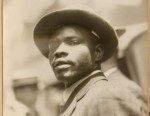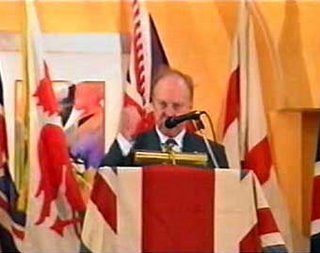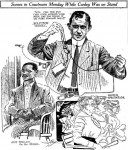More on Carlos Porter’s argument, as expressed in LETTER 29 FROM CHICAGO DAVE: SKUNKIE AND THE LEO FRANK FILE:
In most ways, the commutation file is the best.
Read the files, OK, there are 29 of them, but there’s not much text on each page. [Note: I transcribed them.]
Porter’s conclusion:
The circumstantial evidence, in my mind, is inconclusive; so is the character evidence. If Frank had been convicted on circumstantial evidence alone, the case would be unclear. The evidence provided by Conley — particularly, the death notes — proves, in my view, that Frank’s guilt is not only out of the question, but absolutely impossible.
That’s the way I feel today, and I’ve felt that way for 30 years.
Porter has left some comments on Part 9. Much of it taken from LETTER 29. This snippet, for example, relates the portion of his argument which he says anticipated mine:
Frank cannot have dictated those notes. At most he could have said, “Hey Jim, why don’t you write a couple of notes and pretend you’re the girl and say a tall slim negro did it, since you’re short and stocky”? “OK Boss”. What would be the point to that? Why would Conley agree to do that — for any amount of money? As soon as the word got out that Conley wrote the notes, it would logically be assumed (under normal circumstances) that Conley committed the murder, and his life wouldn’t be worth a plugged nickel. Unless they believed him. The notes would lead the cops to Conley and Conley would accuse Frank, which is exactly what happened according to the people who think Frank was guilty.
Porter seems not only unwilling to think of an answer, but unable to accept that one has been provided.
The point of Frank requesting Conley write something would have been to direct suspicion away from himself. He may have hoped to cloud the investigation and create exactly the kind of doubt and confusion Porter and others have used to argue in favor of Frank’s innocence.
Porter implies that dumb drunkard Conley would have known that the police could match his handwriting and connect the notes back to him. Porter is unwilling to imagine however that clever quick-witted Frank could have seen any benefit to himself.
It’s not difficult to imagine how either man could have seen value in producing those notes. Frank in a smart and direct way, by getting someone else implicated, and Conley in a relatively stupid way, by helping his boss in order to indirectly help himself. When Conley wrote the notes he was mindful enough to implicate someone else. He was apparently just as mindful when he later lied about being unable to write, and still later when he claimed that Frank had dictated the notes, which very well could have been a lie.
As soon as the word got out that Conley wrote the notes, it would logically be assumed (under normal circumstances) that Conley committed the murder, and his life wouldn’t be worth a plugged nickel. Unless they believed him. The notes would lead the cops to Conley and Conley would accuse Frank, which is exactly what happened according to the people who think Frank was guilty. If you committed a murder you’d leave the body alone, you’d know any note would be linked to the killer.
If it weren’t for the notes it is quite probable that no one would have realized that Conley was even in the factory that day.
People who believe Frank was guilty do not like to discuss the notes in any detail, because logically they prove that Frank was innocent.
To sum up:
There were 2 notes, only one of which mentions the “night wich”. Even if “night wich” means “night watch”, instead of “night witch”, a common element of African folklore, a clear distinction is still made between the “night wich” and the “long, tall negro black”. They are clearly 2 different entities or people. The same note says the “night wich” didn’t do it. What is the sense of that? There were 2 notes, only one of which mentions the “night wich”. Why write 2?
A Negro would automatically be suspected of the crime. What difference would it make to Frank which one?
How would the notes implicate Newt Lee, the night watchman, if they were in Conley’s handwriting? The notes led the police to Conley, who led the police to Frank. Anyone could have predicted this. Or did Frank think the police would think they were written by the victim during the act of rape? “I wright while play with me”. What is the sense of that?
Indeed, there is little sense in this series of rhetorical questions. Porter’s jumble of points is based largely on overlooking or even inverting the reality that Frank was smart and Conley was not. It seems designed to create confusion rather than offer any sensible resolution to the apparent conflicts he brings up.
The fact that the notes are full of nonsense is an indication that they were conceived by the same simpleton who admitted writing them. If Conley lied about Frank dictating the notes, then that is an indication only that the simpleton preferred Frank be convicted of murder rather than himself.
Slaton was a politician and the file contains a lot of double-talk, for the simple reason that he didn’t want to make his constituents any madder then necessary. As it was, he had to call out the National Guard; for four nights, the woods behind his house was full of armed men trying to break into the house
The first portion of Slaton’s letter seems to be a fair enough description of the facts of the case, not double-talk.
The webmaster of the LeoFrank.org site spent about six weeks arguing with me about the case and about those notes in particular. At one point, he admitted to me that “those notes are an absurdity”. I pounced immediately, and said, “so, you admit that you believe in an absurdity?”
You know what he did? He changed the subject. This is what people ALWAYS do when you mention those notes. They run away. That is why I concentrate on them. I asked a question. I want an answer.
Porter also believes in an absurdity. He believe these absurd notes “prove” Frank’s innocence.
I can guess how the exchange with the webmaster of leofrank.org went. For six weeks Porter asked his rhetorical questions, answers were provided, and Porter ignored them.
It is well worth reviewing Governor John Slaton’s commutation letter, not only because Carlos Porter attests to its value, but because it provides a relatively concise and contemporary description of the thinking around the case. By it’s very nature Slaton’s argument was biased in favor of Frank, but his view still comes across as relatively objective, logical and reasonable.
Porter has emphasized select portions of Slaton’s text in his transcription, but it is still somewhat easier to read (not to mention copy and paste from) than the scans of the typewritten original.
Slaton wrote:
RACIAL PREJUDICE
The charge against the State of Georgia of racial prejudice is unfair. A conspicuous Jewish family in Georgia is descended from one of the original colonial families of the State. Jews have been presidents of our Boards of Education, principals of our schools, Mayors of our cities, and conspicuous in all our commercial enterprises.
THE FACTS IN THE CASE
Many newspapers and non-residents have declared that Frank was convicted without any evidence to sustain the verdict. In large measure, those giving expression to this utterance have not read the evidence and are not acquainted with the facts. The same may be said regarding many of those who demanding his execution.
In my judgement, no one has a right to an opinion who is not acquainted with the evidence in the case, and it must be conceded that those who saw the witnesses and beheld their demeanor upon the stand are in the best position as a general rule to reach the truth.
I cannot, within the short time given me to decide the case, enter into the details outlined in thousands of pages of testimony. I will present the more salient features, and have a right to ask that all persons who are interested in the determination of the matter, shall read calmly and dispassionately the facts.
Slaton reviewed several significant details of the case which indicated Frank’s guilt and had nothing to do with Jim Conley. Here he discusses the claims made by Minola McKnight, Frank’s mishandling of Newt Lee’s time slip, and the testimony of Monteen Stover:
The cook’s husband testified that on Saturday, the day of the murder, he visited his wife at the home of Mr. Selig, defendant’s father-in-law, where Frank and his wife were living, and that Frank came in to dinner and ate nothing. The negro cook of the Selig’s was placed upon the stand and denied that her husband was in the kitchen at all on that day. For purposes of impeachment, therefore, the State introduced an affidavit from this cook that on Sunday morning after the murder, she heard Mrs. Frank tell her mother that Mr. Frank was drinking the night before and made her sleep on a rug and called for a pistol to shoot himself, because he (Frank) had murdered a girl. This affidavit was relevant for purposes of impeachment, although, of course, it had no legal probative value as to the facts contained therein. On the stand, the cook declared that she was coerced by her husband and Detectives under threat of being locked up unless she gave it, and it was made at the Station House. The State proved it was given in the presence of a lawyer and said that her denial of the truth of the affidavit was because her wages had been increased by the parent of Mrs. Frank. No details are given as to where the conversation occurred between Mrs. Frank and her Mother, nor is there any explanation as to how she happened to hear the conversation. It will be easily seen that the effect of the affidavit upon the jury might be great.
It is hard to conceive that any man’s power of fabrication of minute details could reach that which Conley showed, unless it be the truth.
The evidence introduced tended to show that on Sunday morning Frank took out of the Time Clock the slip which he had admitted at that time was punched for each half hour, and subsequently Frank claimed that some punches had been missed. The suggestion was that he had either manipulated the slip to place the burden on Lee, or was so excited as to be unable to read the slip correctly.
The State introduced a witness, Monteen Stover, to prove that at the time when Mary Phagan and Frank were in the Metal Room, she was in Frank’s Office and he was absent, although he had declared he had not left his office.
I have not enumerated all the suspicious circumstances urged by the State, but have mentioned what have appeared to me the most prominent ones. Where I have not mentioned the more prominent ones, an inspection of record tends to maintain the contention.
The the jury and several judges decided unanimously that the circumstantial and character evidence was conclusive, beyond a reasonable doubt. Slaton speculated that Frank did not dictate the notes. He did not argue that this, together with everything else he considered, “proved” Frank’s guilt was “absolutely impossible”. That is Porter’s ridiculous leap. Slaton saw and described only enough doubt in Frank’s guilt to justify the legal technicality he used to alter Frank’s punishment.
Podcast: Play in new window | Download













